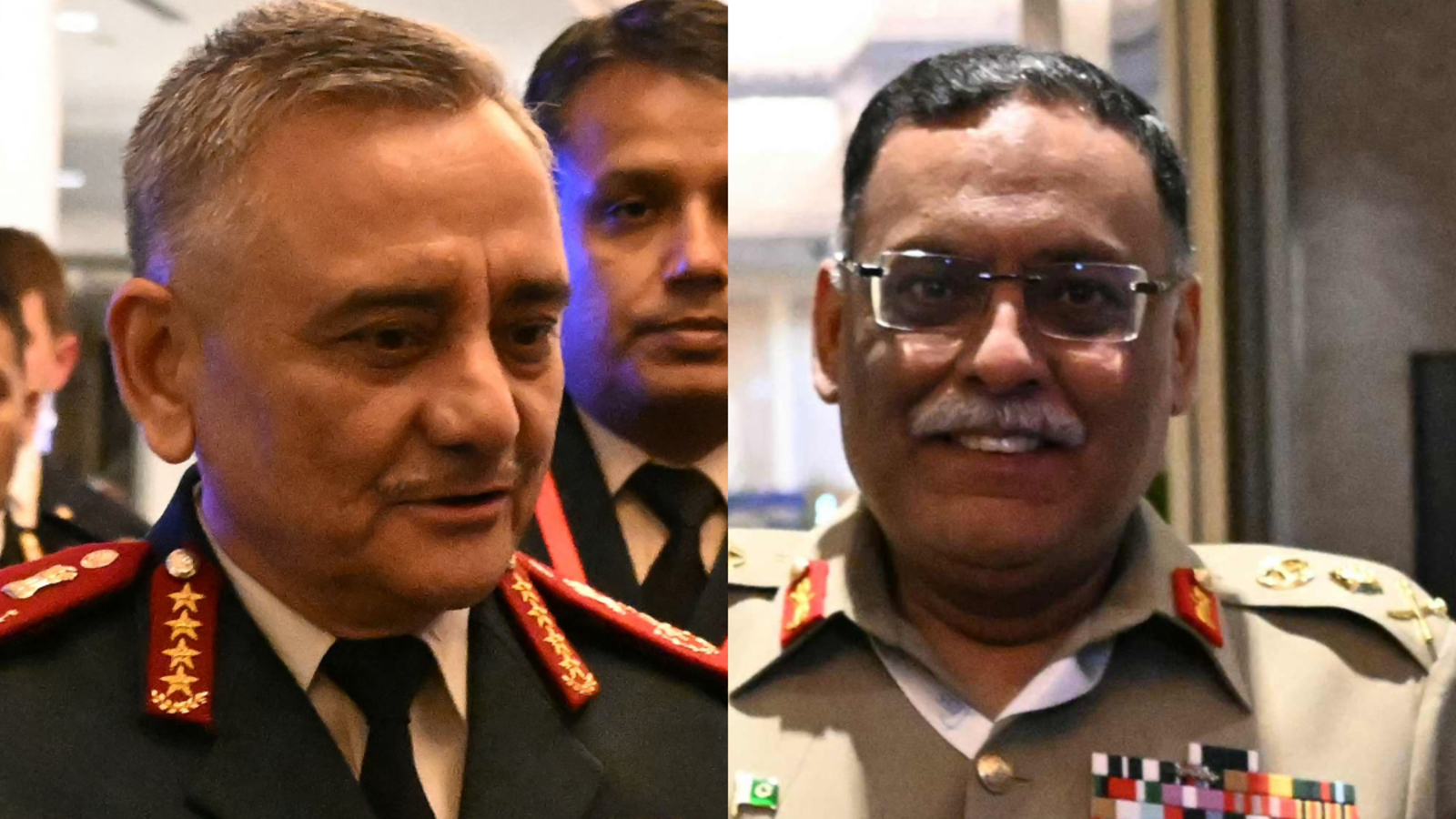
India, Pakistan generals exchange warnings amid tensions at Shangri-La Dialogue as CDS Chauhan cites ‘red line’
How did your country report this? Share your view in the comments.
Diverging Reports Breakdown
India, Pakistan generals exchange warnings amid tensions at Shangri-La Dialogue as CDS Chauhan cites ‘red line’
India’s Chief of Defence Staff General Anil Chauhan and chairman of the Joint Chiefs of Staff Committee General Sahir Shamshad Mirza exchanged warnings at the Shangri-La Dialogue. Tensions between the two neighbours drew attention at the gathering of the top global defence forum held from Friday to Sunday in Singapore. Mirza said unless countries did not “enter conflict resolution” — which he said could initially be through conflict management and then lead to resolution — issues would “always erupt” The top general further said that following the military conflict, the “threshold of an escalatory war has come dangerously low, implying greater risk on both sides, not just in the disputed territory but all of India and all of Pakistan’s” He also stressed that an “early resolution of Kashmir (issue) in line with the UN Security Council resolutions and as per the aspirations of the people is essential” for an enduring peace in South Asia.
Just as these nations are adjacent geographically, some of their top generals sat in neighbouring conference rooms inside the Shangri-La Singapore, taking part in simultaneous sessions late on Saturday afternoon on topics ranging from defence innovation solutions to regional crisis-management mechanisms, news agency PTI reported.
Speaking at the event, CDS General Anil Chauhan, referring to Operation Sindoor against Pakistan, said, “What India has done, politically, they have drawn a new red line of intolerance against terror.”
“I hope this particular operation, it is basically lying in military domain, that should bring about some lessons for our adversary also, and hopefully they learn that this is a limit of India’s tolerance,” PTI quoted Anil Chauhan as saying.
“We have been subjected to this proxy war of terror for almost two decades and more, and we lost lot of people…we want to put an end to it,” the CDS added.
The ongoing tensions between the two neighbours drew attention at the gathering of the top global defence forum held from Friday to Sunday
While New Delhi accused Pakistan-based terror groups of a deadly attack on tourists in Jammu and Kashmir’s Pahalgam on April 22 in which 26 people were killed, Islamabad denies any involvement.
What Pakistan general said
In his address, Pakistan’s General Sahir Shamshad Mirza stressed the need to move towards conflict resolution instead of management, warning that its absence could result in a destructive escalation, PTI reported.
During a panel discussion, titled “Regional Crisis-Management Mechanisms”, Mirza said: “It has become imperative to move beyond conflict management towards conflict resolution. This will ensure sustainable peace and assured crisis management.”
He then stressed that an “early resolution of Kashmir (issue) in line with the UN Security Council resolutions and as per the aspirations of the people is essential” for an enduring peace in South Asia.
“Given the Indian policies… the absence of a crisis management mechanism may not give enough time to the global powers to intervene and affect cessation of hostilities. They will probably be too late to avoid damage and destruction,” he said.
Mirza also raked up the Kashmir issue.
“When there is no crisis, Kashmir is never discussed, and as we always say that it is the Kashmir dispute resolution in line with the aspirations of the people of Kashmir and in line with the UNSC resolutions that will address many issues.
“The core that resides between Pakistan and India is Kashmir,” he said.
Mirza said unless countries did not “enter conflict resolution” — which he said could initially be through conflict management and then lead to resolution — issues would “always erupt”.
The top general further said that following the military conflict, the “threshold of an escalatory war has come dangerously low, implying greater risk on both sides, not just in the disputed territory but all of India and all of Pakistan”.
“Emboldening of India as a net security provider by the West and its ambition to become a regional hegemon is disincentivising it to engage in conflict management options,” Mirza asserted.
Mirza also said that following the recent Pakistan-India military confrontation, the threshold of strategic stability had been lowered to “dangerous levels”.
He stated, “The threshold of what we say conventional warfare has significantly degraded.”
India’s Operation Sindoor
India launched Operation Sindoor on May 7 to destroy nine terror infrastructures in Pakistan and Pakistan-occupied Kashmir (PoK) in retaliation against the April 22 Pahalgam terror attack.
All subsequent retaliations to Pakistani offensives were carried out under this operation. The four-day military conflict between India and Pakistan ended with an understanding on stopping the military actions on May 10.
Mirza claimed that the US, the UK, Turkiye, China, Saudi Arabia and the United Arab Emirates as the “interlocutors”.
(With inputs from PTI)
